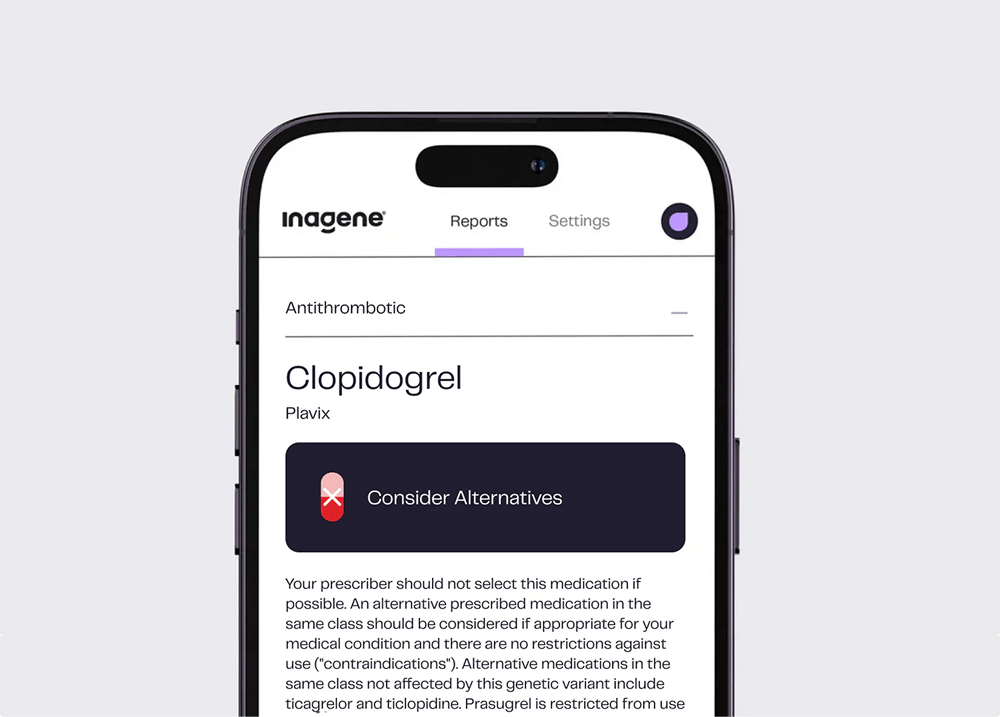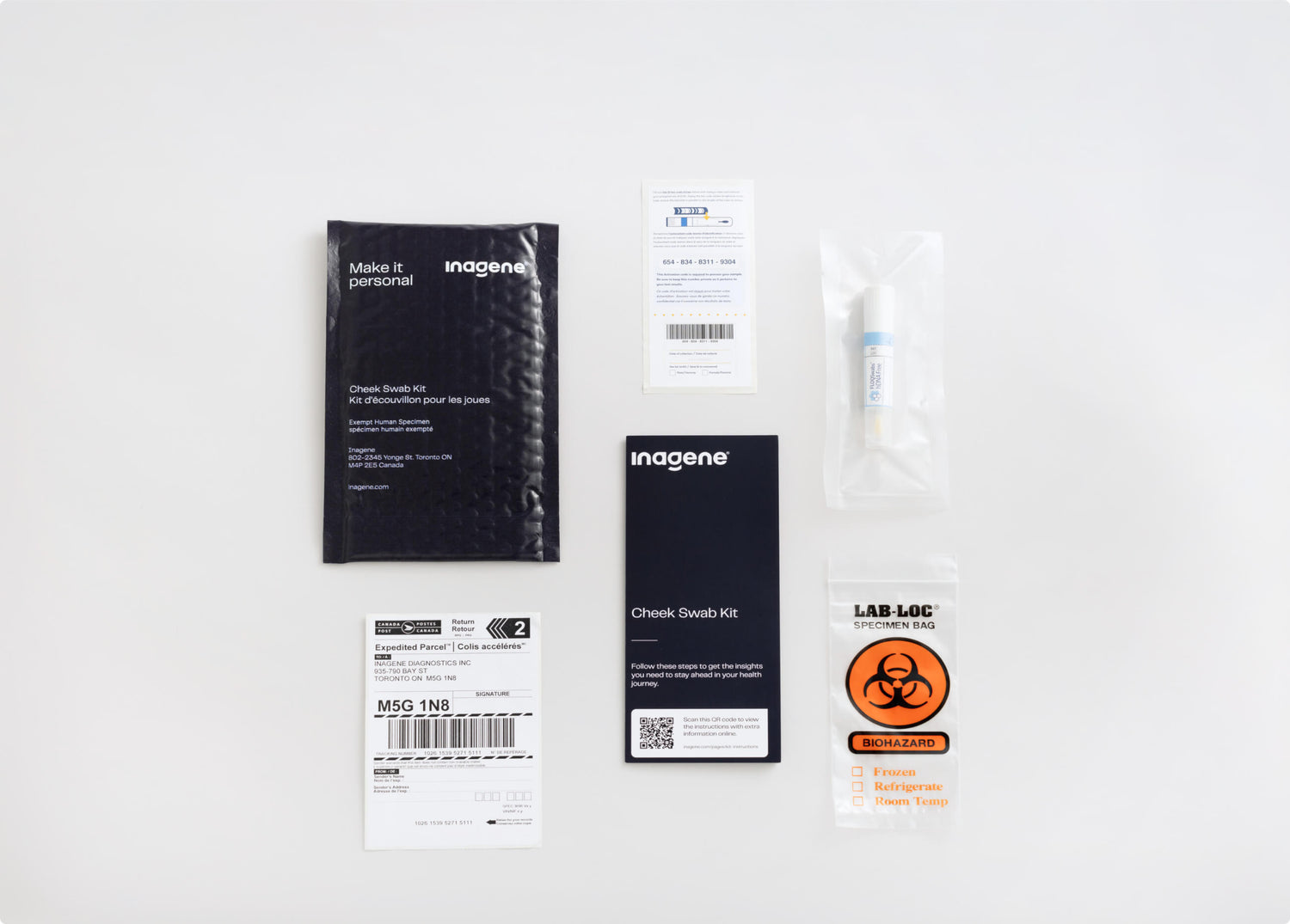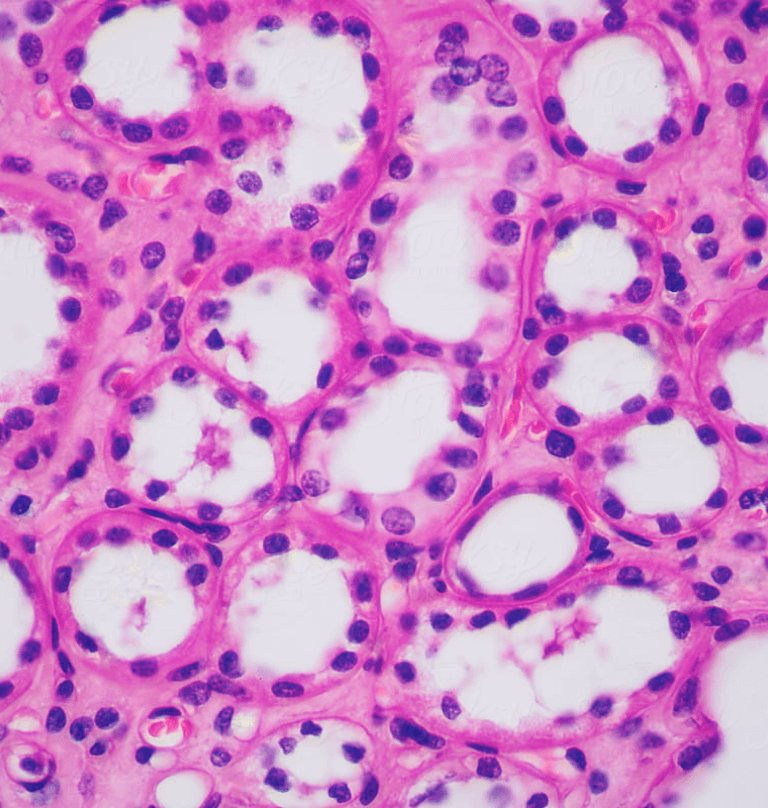

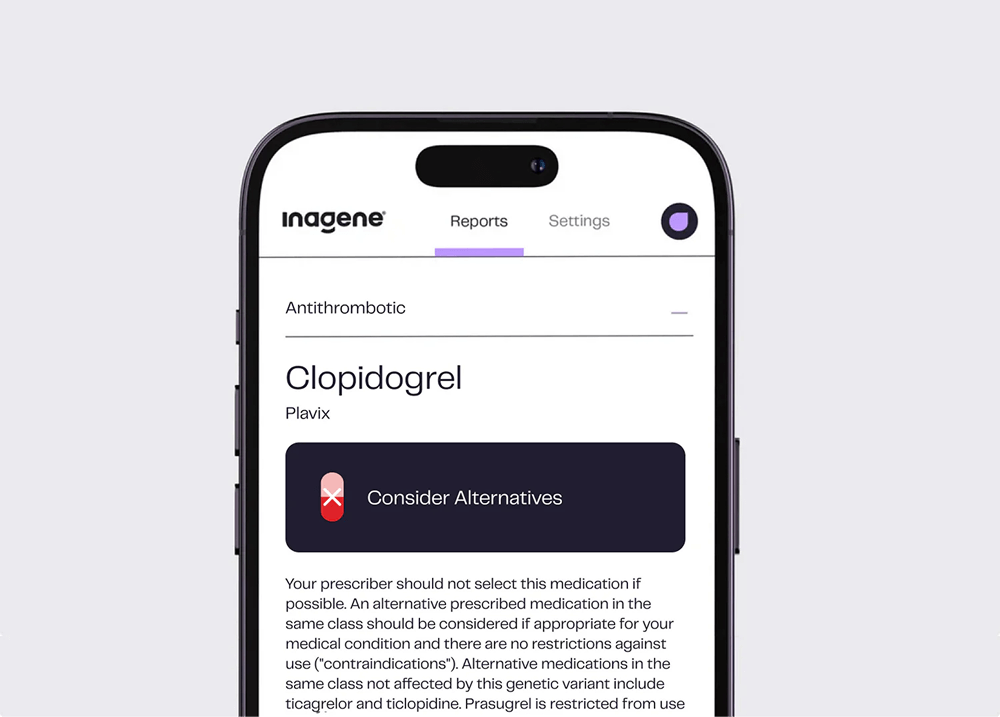
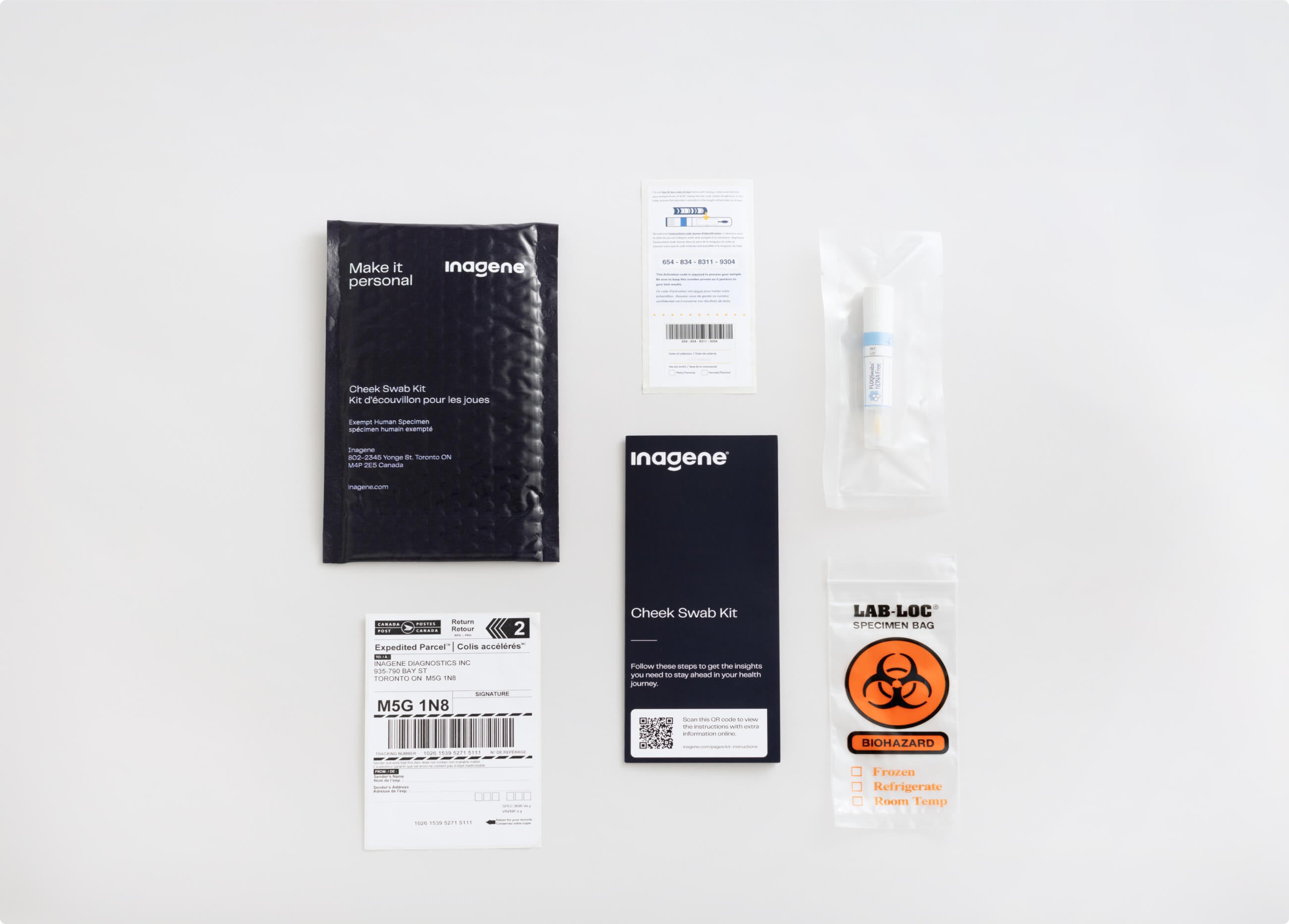


Powerful genetic insights
We use the world’s best science to help you limit trial and error, avoid side effects, and find the right medications faster.
How It Works
-

1.
Swab your cheek with our kit and mail it to our lab with the package provided.
-

2.
When your results are ready, view, download and share your personalized insights.
-

3.
Discuss your results with your healthcare provider to optimize your treatment plan.

Everything included in your Inagene test kit:
- DNA sample collection kit and instructions
- Pre-paid mailer to our lab
- Private and secure results via your account
- Clear medication and dosage recommendations
Covers medications across a range of therapeutic areas:
Your privacy is our top priority
Learn MoreAs seen on
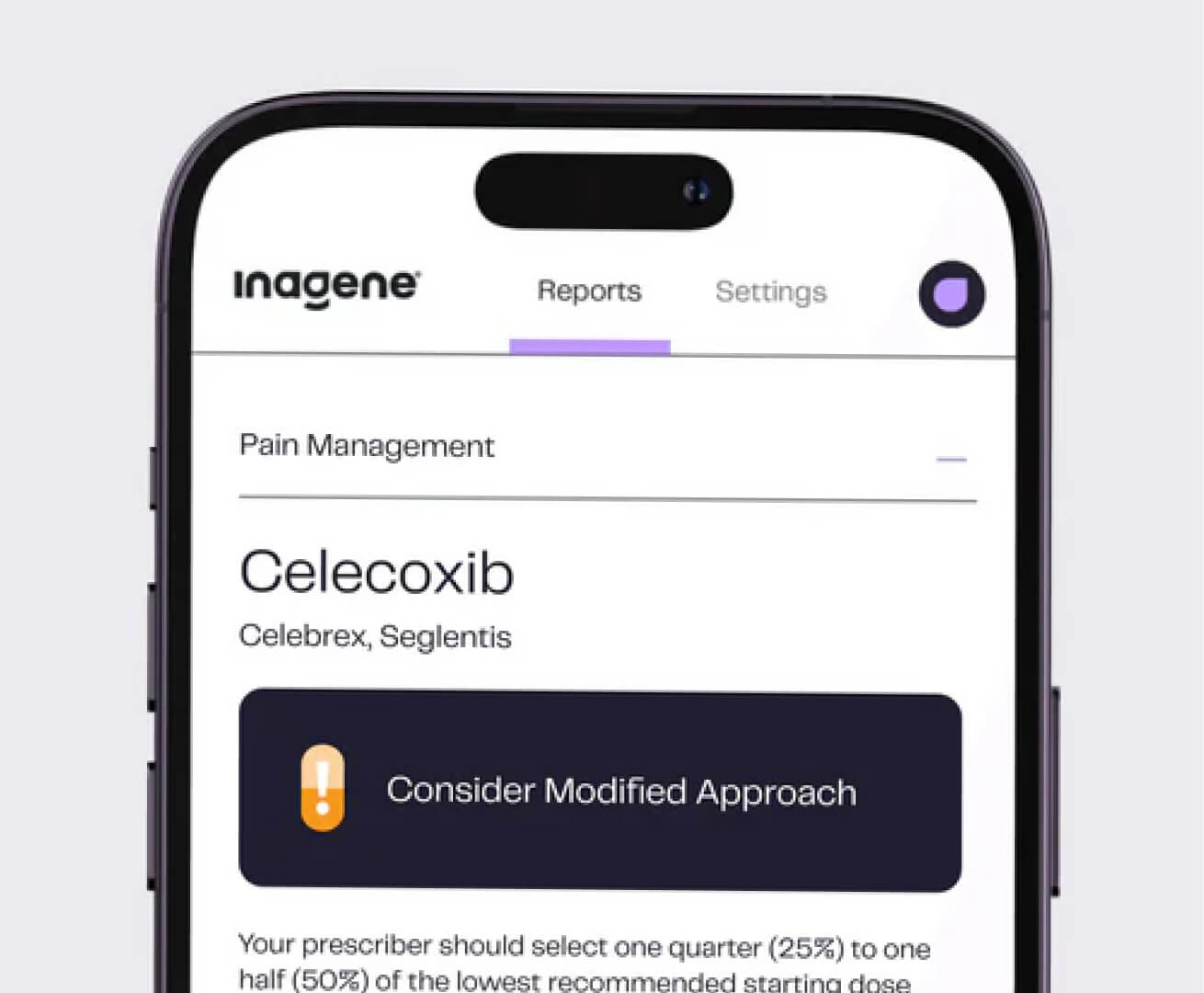
Your inagene insights
Your personalized results are secure, confidential, and easy to access or share anytime, anywhere.
Why Inagene?
-
Clinical-Grade Testing You Can Trust
Genetic variant(s) potentially impacting response to this medication were identified. This medication may not be appropriate. Consult the “detailed recommendations” section of the report for details.
-
End the Trial-and-Error Cycle
Genetic variant(s) potentially impacting response to this medication were identified. Consult the “detailed recommendations” section of the report for details.
-
Reduce Side Effects
No genetic variants impacting response to this medication were identified.
Genetic analysis is performed in our COLA and CLIA-accredited Toronto laboratory. These accrediting bodies are mandated to ensure that testing laboratories meet quality control and accuracy standards and certify that the results are accurate and reliable. Inagene also holds a Medical Device Establishment Licence (#9922) from Health Canada.



Other Products:
FAQ
Where do the recommendations in the report come from?
The recommendations in Inagene's report are sourced from several established expert pharmacogenetics consortia, and regulatory bodies like the FDA. These recommendations are then paired with insights gleaned from your DNA profile to provide you with personalized insights that can help you feel better, sooner.
How will my Inagene report help me get better healthcare?
Your personalized report will allow you and your health care team to manage your health concerns more effectively and safely. By analyzing your DNA, we can predict how you will respond to up to 196 commonly used medications. Your Inagene report offers personalized recommendations on which medications could work better for you, which medications may need to be prescribed using a modified approach, and when alternative medications should be considered. The recommendations in your report will help you reduce side effects, avoid trial and error and find a more effective medication faster.
Which conditions does the test cover?
Your Inagene report provides information related to your predicted response to medications used in a variety of therapeutic areas. Our tests cover mental health (depression, anxiety PTSD, OCD and more), cardiology, gastroenterology, neurology, oncology, postpartum, pregnancy, menopause and more. Applicability of your results will depend on your specific condition(s) and circumstances. Only your health care provider can determine if and how results can be applied to your treatment plan. View our full list of medications.
How will my Inagene report help me get better healthcare?
- References
- Swen JJ, van der Wouden CH, Manson LE, et al.
- Statistics Canada
- Jackevicius CA, Mamdani M, Tu JV
- Adapted from supplement to: Lee CR, Luzum JA, Sangkuhl K, et al
Not sure what solution is right for you? We can help.
Get email updates
Yes, I consent to receiving emails from Inagene.
Shop
- Complete Health
- Pain & Mental Health
- Cardiovascular Health
- Nutrition & Fitness
- Shop All
- Medications Covered
About
Get Help
Legal
Our Breakthrough Cardiovascular Health Test Is Making Headlines
Watch The Clip
How do I access my updated report?
You can access your updated report through your secure online portal. We’ll notify you via email each time your report is updated.


